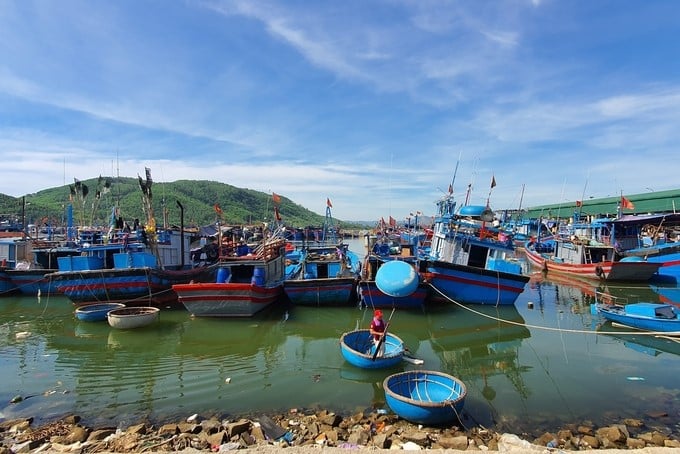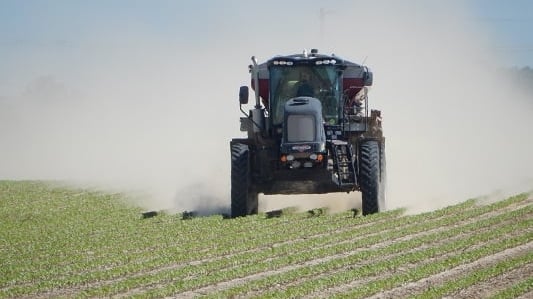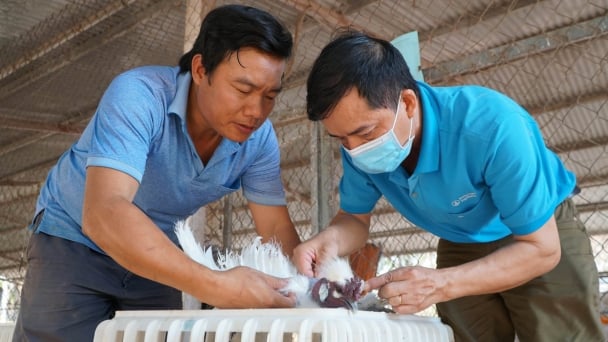May 14, 2025 | 16:21 GMT +7
May 14, 2025 | 16:21 GMT +7
Hotline: 0913.378.918
May 14, 2025 | 16:21 GMT +7
Hotline: 0913.378.918

Quang Ngai province will ban seafood exploitation in two coastal waters in November every year. Photo: L.K.
On October 31, the Quang Ngai Department of Agriculture and Rural Development announced that this province had issued a regulation on areas banned from seafood exploitation for a fixed term in coastal waters in the area.
Accordingly, the sea areas where seafood exploitation is prohibited for a fixed term include the Southern sea area of Ly Son island district with an area of more than 7.6 hectares and the coastal area of Duc Pho town with an area of more than 7.4 hectares. The exploitation ban period is from November 1 to November 30 every year.
This exploitation ban aims to protect areas where aquatic species concentrate on breeding and areas for nursery and young aquatic species according to the Planning for protection and exploitation of aquatic resources for the 2021–2030 period, with a vision to 2050, which has been approved by the Prime Minister.
The Quang Ngai Department of Agriculture and Rural Development requests coastal localities and relevant units to widely inform the people, especially ship owners, captains, and crew members, to know the two areas that are banned from seafood exploitation. At the same time, focus on disseminating and raising awareness for fishermen to strictly comply with the regulations of law during the seafood exploitation process to protect long-term livelihoods.
"During the ban period, if fishermen intentionally violate the law, depending on the nature and severity of the violation, they may be subject to administrative sanctions or criminal prosecution," said Mr. Nguyen Duc Binh, Deputy Director of the Quang Ngai Department of Agriculture and Rural Development.
Quang Ngai province's waters have high biodiversity with nearly 1,300 aquatic species, including 36 endangered and rare species. However, in recent years, there is still a situation where fishermen use electric pulses, explosives, and banned fishing tools for exploitation and catching, leading to the depletion of aquatic resources.
Translated by Thu Huyen

(VAN) Vietnam's draft amendment to Decree No. 156 proposes a mechanism for medicinal herb farming under forest canopies, linking economic development to population retention and the sustainable protection and development of forests.

(VAN) In reality, many craft village models combined with tourism in Son La have proven effective, bringing significant economic benefits to rural communities.

(VAN) The international conference titled Carbon Market: International experiences and recommendations for Vietnam was successfully held recently in Ho Chi Minh City.

(VAN) According to the Project on rearranging provincial and communal administrative units, in 2025, the country will have 34 provinces/cities, 3,321 communes, wards, and special zones, and no district-level organization.

(VAN) The vice president of fertilizer with Stone X Group says the Trump administration’s tariffs are impacting fertilizer markets.

(VAN) Resolution 57 offers Vietnam a significant opportunity to narrow the global genetic technology disparity and convert its extensive genetic resources into commercial advantages.

(VAN) The Ministry of Agriculture and Environment will prioritize the implementation of five core and breakthrough solutions in science and technology, in addition to the seven groups of tasks identified in Decision No. 503.